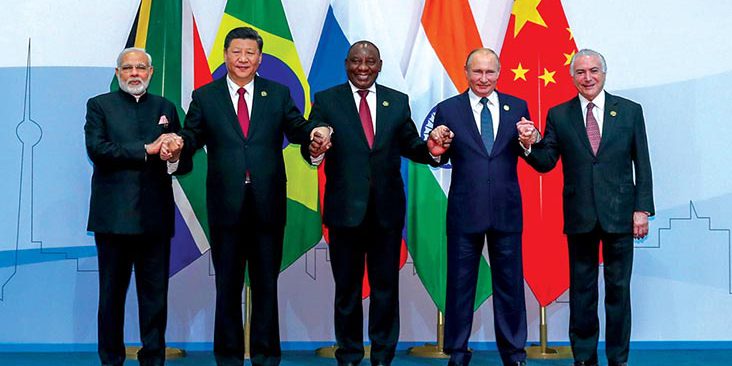Projections regarding the future of the global order have traditionally relied on two assumptions: 1) rising powers are gradually “rising from within” the existing global governance infrastructure; and, 2) U.S.-led institutions are robust. To effectively plan in a rapidly changing geopolitical climate, it is important to enhance our socio-cultural understanding of rising powers, their effect on the existing global order, and, as needed, reevaluate these historical assumptions. The BRICS (Brazil, Russia, India, China, and South Africa) countries are engaging in revisionist coalitions and creating new institutions or, as some argue, creating a parallel system, that challenge historical U.S. global leadership. This new geopolitical dynamic is already affecting U.S. security interests and raising concerns that the United States could be potentially forced to contend with new and broadly legitimate global norms that it had no part in making. While much of the existing debate looks at hypothetical situations (such as a possible new Cold War or discarding rising power alliances as an analytical unit), it is necessary to analyze rising power alliances through a social and cultural lens.
In this webinar, Dr. Papa discusses findings from a Minerva Research Initiative that seeks to study and address this need. Launched by the Secretary of Defense in 2008, the Minerva Research Initiative is a DoD-sponsored, university-based social science research initiative that focuses on areas of strategic importance to the U.S. national security policy. This project, undertaken under the Minerva initiative, focuses on theories that propose a rigorous, multidisciplinary framework for defining and understanding alliances in the contemporary global order; empirically, by collecting extensive data through field research on rising power economic and political processes, interactions, culture, and mobilization in critical areas for U.S. national security; and operationally, by increasing the U.S. government’s geostrategic situational awareness and exploring response options. Additionally, Dr. Papa describes how these countries perceive allied relationships, adopt innovative forms of inter-state collaboration, and cultivate strategic partnerships, seeking to enhance our socio-cultural comprehension of these complex system behaviors and structures that directly affect U.S. homeland security and defense.


